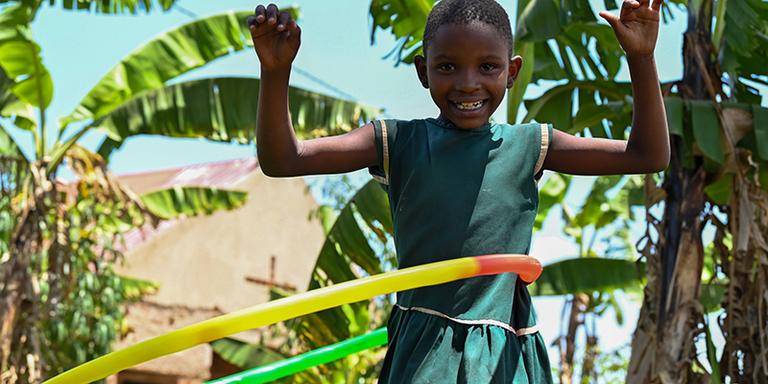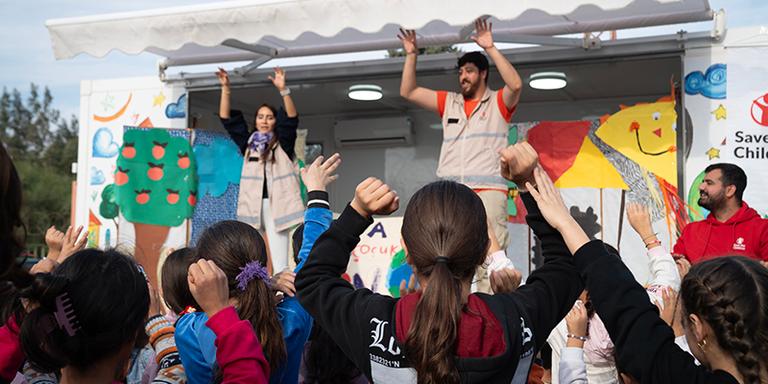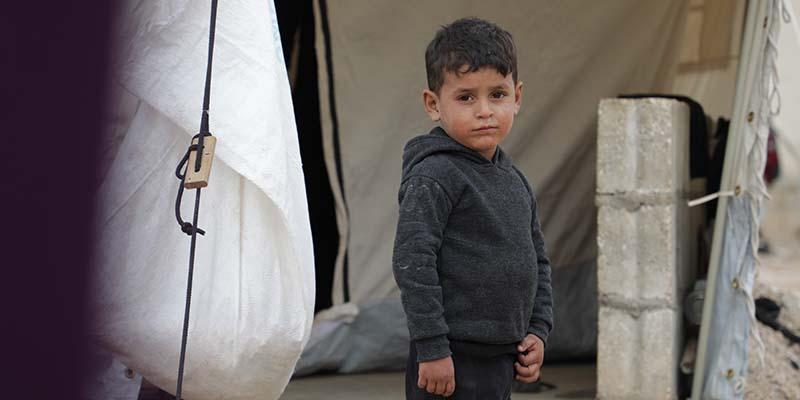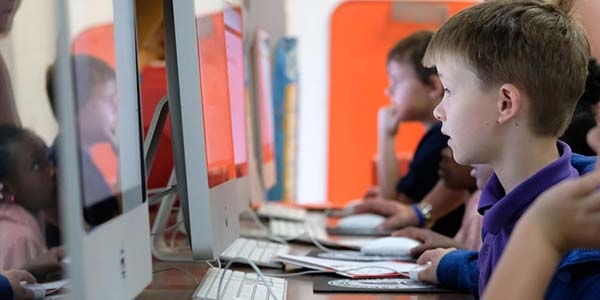Celebrating International Day of Play: The Importance of Play for All Children
Written by James Cox, Head of Advocacy and Policy - Education, ąű¶ł´«Ă˝ International
In this piece, James Cox, Education Policy and Advocacy Lead at ąű¶ł´«Ă˝ International, defends play as a vital right for every child. Amid crises and inequality, play supports mental health, learning, and resilience. In honor of International Day of Play, which occurs annually on June 11, James also calls on global leaders to invest in safe, inclusive play for all children.

Friends, Agnes, 7 and Meilly, 10 play and walk to the beach on the island of Vanuatu.
Friends Agnes, 7, and Meilly, 10, walk to the beach in Shefa Province an island in Vanuatu. Photo by Conor Ashleigh / ąű¶ł´«Ă˝
Play can sometimes seem frivolous. In a world where children are facing so many challenges to their education and their futures, should we really be prioritizing fun?
You wouldn’t be alone - 70% of adults don’t know that children have a Right to Play, under the UN Convention on the Rights of the Child 1989.
But children know play is a serious business –one that is crucial for their well-being, learning and development. It develops socio-emotional learning, holistic skills, and resilience. It fights against increased levels of isolation and anxiety, processes feelings, helps give a feeling of agency. It fuels curiosity, sparks creativity, and inspires a lifelong love of learning.
Scale of Need
Despite the critical importance of play, children are enjoying much less child-led, free play outdoors then their parents did as children, with urbanization, climate crises, pollution, insecurity – as well as conflict – all increasingly denying children access to public play spaces.
; 1 in 3 children and young people do not have the time to play – and 1 in 5 have no one to play with.
And young children in the world’s poorest households are twice as likely to miss out on play with a parent or caregiver than wealthier children, according to new ąű¶ł´«Ă˝ analysis for the second annual International Day of Play.
Play is particularly important for children who have experienced distressing events, such as violence and loss of loved ones. Through play children can explore their emotions and experiences and regain some normalcy.
aged between 3 and 4 years-old in 88 countries do not have a parent or caregiver who plays or engages in early learning activities with them, even though play is crucial for children’s development.
And amid increasing conflict and climate related disasters in the world, children caught in crisis consistently tell us how important play is to their wellbeing, for a sense of normalcy – and for hope for a better future.

Shanteen benefits from Sponsorship programing in Uganda.
Shanteen hula hooping in Wakiso, Uganda.
Photo by: ąű¶ł´«Ă˝
Evidence of Impact
This is why the global movement of adults recognizing the importance of play, that mobilized for the creation of the International Day of Play –launched last year by the General Assembly of the United Nations— is so critical.
At ąű¶ł´«Ă˝ we’re proud to be part of this growing movement, standing up for every child’s right to play.
For children caught in conflict and crisis, we rapidly create Child-Friendly Spaces and Temporary Learning Spaces to help offer a safe space to play with friends, resume learning and cope with their experiences through play-based learning and mental health and psychosocial support.
We support parents and caregivers with playful learning resources –directly, through preschools and schools, and through public health systems. Our Prescription to Play program worked with health workers in Bhutan to support 0–3-year-olds with playful parenting.
With rapid flexible funding from donors like the LEGO Foundation, we ensure that integrated play-based education in emergencies is part of the acute phases of humanitarian response, including approaches that recognize that health workers, educators and parents all have a role to play.
Moreover, we are pioneering integrated activities that bring together best practice from Child Protection, Education in Emergencies, and Mental Health & Psychosocial Support as well as live-saving learning.
We’re also supporting integrated approaches that recognize that health workers, educators and parents all have a role to play. And we’re advocating for systemic change that helps support millions of children to access playful learning, whether through influencing holistic education reforms and new curricula in Colombia, Kenya and South Africa, securing millions of dollars in support for Early Childhood Education support for low-income families in US, or improvements to national Early Childhood Legislation in Kosovo.
Together, we’re showing it’s possible to support children, their wellbeing and their learning with safe, fun, and engaging play –even in the most challenging of circumstances.

ąű¶ł´«Ă˝ staff in TĂĽrkiye dance on the stage as children below follow along.
ąű¶ł´«Ă˝ TĂĽrkiye's mobile van provides psychosocial support to children in Hatay by offering activities such as theater performances and obstacle courses. Photo by: AyĹźe Nur Gençalp / ąű¶ł´«Ă˝ TĂĽrkiye
Join Us in Celebrating the Joy of Play
This International Day of Play, we are calling on governments, businesses and other stakeholders to join the movement, and choose play every day by:
- Scaling up parenting programs that incorporate play as a core developmental tool.
- Integrating play-based learning methods in educational curricula globally.
- Implementing policies and scale up investment that ensure every child has access to safe, inclusive, and well-maintained play areas.
With the increasing threats to children –our research now shows that nearly 1 in 5 children across the world live in conflict zones and are experiencing the highest number of grave violations against children since UN records began— play may not always seem like the top priority.
Or, as Sharmake (14) from Somalia puts it:
“Peace isn’t just about stopping the fighting. It’s about creating a place where people can live without fear, where children can play and learn.”
It’s clear that if we want to build a better future, we need to listen –and learn– from children like Sharmake, and make sure that every child can choose play, every day.



